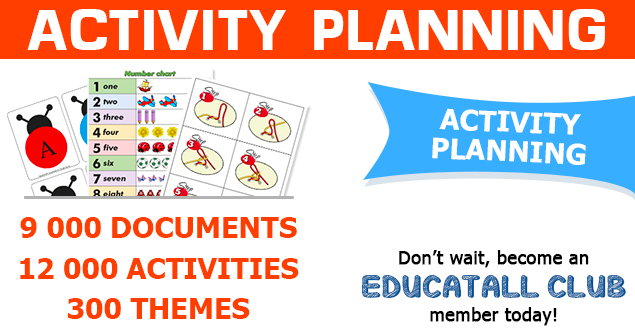
Should I worry about a developmental delay?
I have been working with you, my dear early childhood educators, for quite some time now. I know you have several questions linked to childhood development. You observe the children in your group, you wonder about this and that, you worry... I am always very proud to see you take the time to stop, ask yourself questions, and search for answers. These actions show just how much you care about the children you work with each day. You care about their well-being and want them to reach kindergarten with everything they need to succeed. For this, I am thankful. Keep up the great work!
In this article, I would like to discuss one of your main concerns: developmental delays. A developmental delay can be defined as a discrepancy between a child's current developmental stage and what is generally expected from a child of the same age. Obviously, children don't all progress and learn at the same speed. Each child develops at his own pace and is unique. Children evolve per their own rhythm, interests, and preferences.
Despite their individual rhythm, a "normal" or "typical" progression has been established using standardized tools. These developmental patterns help evaluate whether a child is progressing normally or if a developmental delay is present. These patterns help determine what a child should be able to do per his age. Although these patterns can be "irritating" and alarming to certain parents, they can represent a red flag and signal a problem.
What should you do when you are under the impression something just isn't right? What is the next step when you gut is telling you a child may have a developmental delay?
- First, listen to your feeling. 99.9% of the time, it will be right. Every time I met an early childhood educator to work with a child who was thought to have a developmental delay, the early childhood educator's feeling was right.
- To back up your feeling, read up on childhood development, know the red flags, be aware of what may indicate a delay.
- Meet with the child's parents. I know this may be the most difficult part of your job, but slowly, begin to open the discussion and share your concerns. Doing so may help parents accept the possibility of a developmental delay.
- Encourage parents to meet with a specialist. You may use a screening tool or chart or provide the name of a specialist who is familiar with the problem you suspect.
- Continue to work with the child. When you know a child may have a developmental delay, you must work on developing his capacities and not what is "normally" expected of a child his age. Observe the child closely and try to determine what will help him progress, a few steps at a time. Adapt to the child and adjust your expectations.
Watch for upcoming articles that will include a portrait of what can be expected of children at different ages as well as red flags that must be considered. These articles will guide your observations. They will also prove to be quite helpful if you need to discuss a developmental delay with a child's parents.
Maude Dubé, Specialized educator

 Home
Home Theme activities
Theme activities
 Babies and toddlers
Babies and toddlers
 Arts and crafts
Arts and crafts
 Science
Science
 Creative recipes
Creative recipes
 Tips and tricks
Tips and tricks
 Special needs
Special needs
 Extra activities
Extra activities
 Educ-TV
Educ-TV
 Newsletter
Newsletter  Online store
Online store Educatall club
Educatall club

